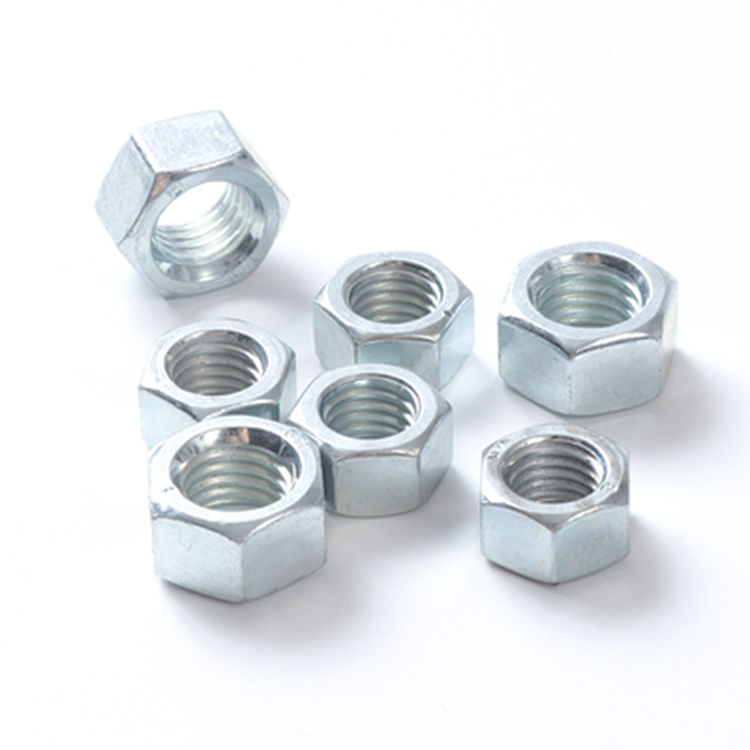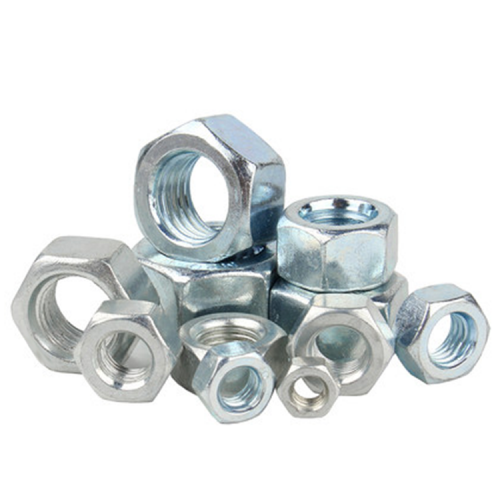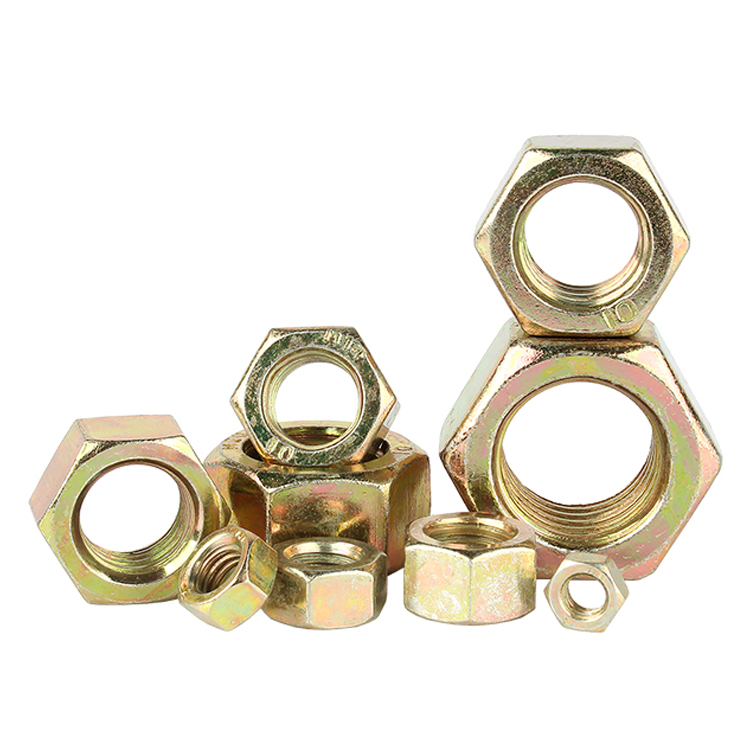

When it comes to choosing the right hardware for your project, selecting the appropriate type of nut can be a crucial decision. Among the most commonly used options are zinc-plated hex nuts and stainless steel hex nuts. Both offer unique advantages depending on the application, so understanding their differences can help you make an informed choice. In this article, we’ll compare zinc-plated hex nuts with stainless steel and explore which one is best for your specific needs.

What Are Zinc-Plated Hex Nuts?
Zinc-plated hex nuts are typically steel nuts that have been coated with a layer of zinc to provide additional protection against corrosion. This coating enhances the durability of the nut, making it ideal for use in moderately corrosive environments. Zinc plating is a cost-effective way to improve the performance of metal components, as it provides a protective layer without significantly increasing the price.
What Are Stainless Steel Hex Nuts?
On the other hand, stainless steel hex nuts are made from stainless steel, which is inherently resistant to corrosion, rust, and stains. This makes stainless steel an excellent choice for harsh environments where exposure to moisture, chemicals, or extreme temperatures is common. Stainless steel also offers high tensile strength, making it ideal for heavy-duty applications.
Zinc-Plated Hex Nuts: Advantages and Best Uses
1.Corrosion Resistance (Moderate)
Zinc-plated hex nuts provide excellent protection against rust and corrosion, but they are not as resistant as stainless steel in extremely harsh environments. They work well in environments where there’s moderate exposure to moisture or weathering, such as outdoor projects or automotive applications.
2.Cost-Effective
One of the main reasons why zinc-plated hex nuts are favored is their affordability. The zinc coating adds a protective layer without significantly increasing the cost, making it a great option for cost-conscious projects where high corrosion resistance is not the top priority.
3.Easy Availability
Zinc-plated hex nuts are widely available in various sizes and specifications, making them easily accessible for different types of projects.

Stainless Steel Hex Nuts: Advantages and Best Uses
1.Superior Corrosion Resistance
Stainless steel hex nuts are highly resistant to corrosion, rust, and staining. They perform exceptionally well in harsh environments where exposure to chemicals, water, or high humidity is common. Industries such as food processing, pharmaceuticals, marine, and oil & gas typically rely on stainless steel for its superior corrosion resistance.
2.High Strength and Durability
Stainless steel is stronger and more durable than zinc-plated steel. It can withstand higher levels of stress, making it ideal for heavy-duty applications, such as in construction, automotive manufacturing, and aerospace industries.
3.Longevity
Because stainless steel is naturally resistant to corrosion, it generally has a longer lifespan compared to zinc-plated options. If you need a nut that can endure over the long term, stainless steel is often the better choice.
4.Aesthetic Appeal
Stainless steel hex nuts have a polished, sleek finish, making them ideal for applications where appearance matters. Their shiny, rust-resistant surface is visually appealing, which is why they are often used in products where both performance and aesthetics are important.
Comparing the Two: Which One Should You Choose?
Cost: If budget is a key factor, zinc-plated hex nuts offer a more affordable solution, especially when the application doesn’t require extreme corrosion resistance.
Corrosion Resistance: Stainless steel hex nuts are better suited for environments with harsh exposure to moisture or chemicals. If you're working in a highly corrosive environment, stainless steel is the clear winner.
Durability and Strength: If your project demands high strength and resilience under stress, stainless steel is the more durable option.
Aesthetics: For applications where the look of the hardware is important, stainless steel offers a sleek, professional appearance.
Applications: For automotive, general construction, and outdoor projects, zinc-plated hex nuts are usually sufficient. For industries requiring long-lasting performance in challenging environments, stainless steel is the go-to choice.

Conclusion
In the debate between zinc-plated hex nuts and stainless steel hex nuts, the right choice depends on your specific needs. Zinc-plated hex nuts are an excellent, budget-friendly option for applications with moderate exposure to corrosion. However, if you're working in highly corrosive environments or need long-term durability, stainless steel hex nuts provide superior performance.
Understanding the unique benefits of each type will help you make an informed decision, ensuring that you choose the best hardware for your application, whether it’s for automotive, construction, or any other industry.
By carefully considering the demands of your project, you can select the most suitable hex nut type, improving both the performance and lifespan of your components.